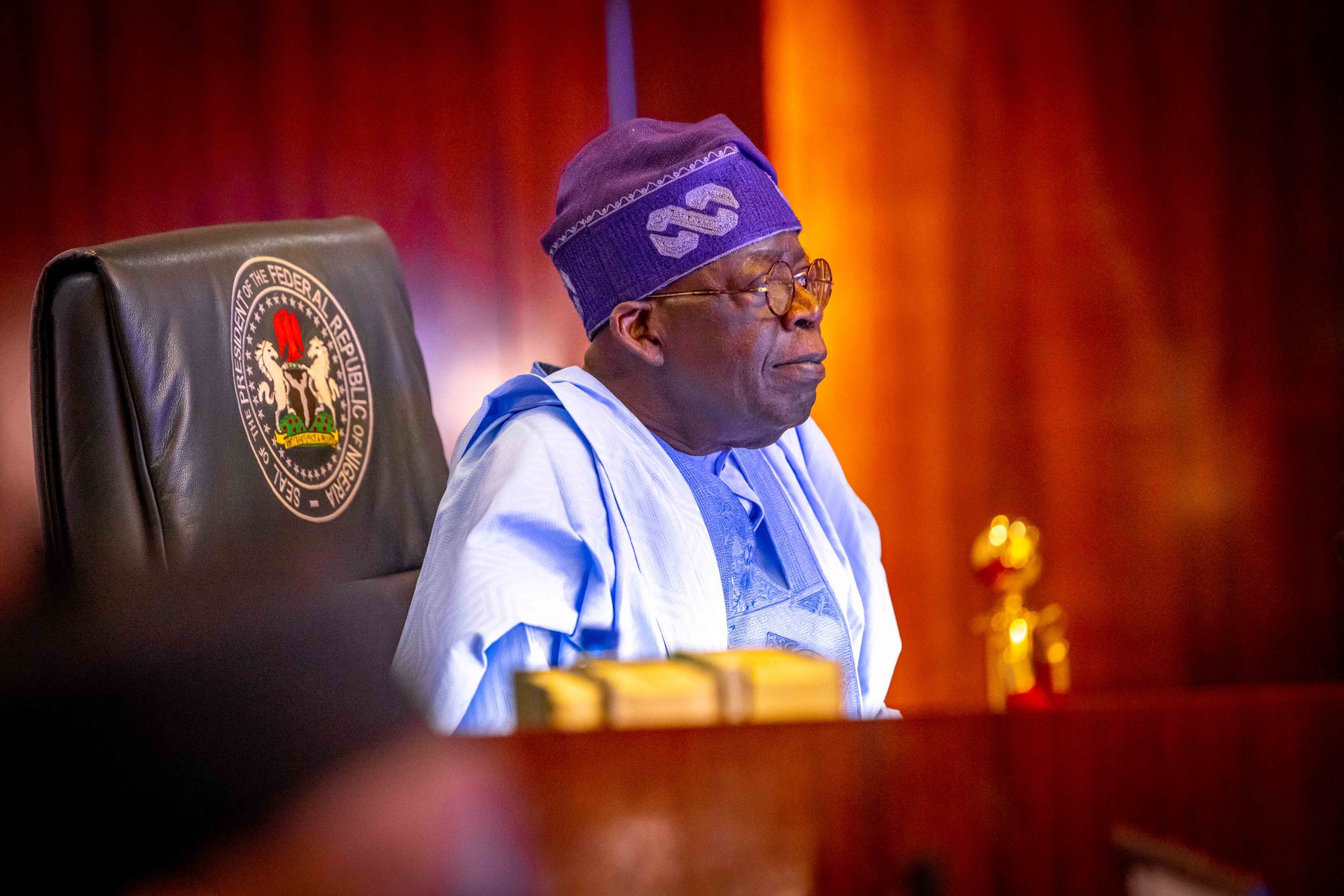Nigerian tech founders and leaders on Tuesday said they want President Bola Tinubu to champion local content as one of several strategies to realise his administration’s digital economy goal for the country, arguing that it is crucial for innovation and development.
This is one of the highlights of the Technology Times Thought Leadership Series (TTTLS) themed “President Tinubu’s Digital Economy Vision: Local Tech Content as the Catalyst,” where prominent figures from Nigeria’s tech ecosystem discussed strategies for realising the Nigerian leader’s ambitious goal of leveraging the digital economy to create at least one million jobs and grow the economy.
The TTTLS livestream, which took place on February 13, 2024, featured thought leaders such as Sir Chima Onyekwere, OON, Founder of Linkserve Limited; Mr Dotun Adeoye, Co-Founder, AI in Nigeria; Mr Tony Emoekpere, President, Association of Telecommunications Companies of Nigeria (ATCON); Dr. Abdullahi T. Sulaiman, MD/CEO, Nigtel Nigeria, and Mr Inye Kemabonta, CEO, Tech Law Development Services.
The tech leaders who framed local content in technology as the proportion of materials, labour, or the extent which technology products, services and solution are developed, produced or provided by companies within a country, also assessed the implement of local content programmes across the economy.
How Can Local Tech Content Drive President Tinubu’s Digital Economy Vision?
Onyekwere, a seasoned entrepreneur and pioneer in the ICT industry with over 25 years of experience, shared his insights on the progress of government policies. He said that, “government policy is very good when they are announced. When it comes to implementation, the challenges will now manifest. The budget for the Ministry of Digital Economy has dropped by more than 46% to N28.5 billion. And the most attractive area has been the payment area, and we have grown local giants that have been doing very well, starting with Interswitch, SystemSpecs, Paystack, and quite a number of them, and they will continue to grow.”
He went further in questioning the government and explored areas the government has neglected, “what about insurance, in governance, changing the curriculum of our schools—primary, secondary, and tertiary institutions—to reflect a drive for digital growth, learning programming; by growing children who can be great programmers, we can export to help our economy, Tetfund funding computers, subsidising internet broadband and where technology can be taught, what is happening to the computer village all over the country, how have they been kept?” He adds that, “Tetfund has the capacity to fund education largely; the private sector has the capacity, but they need encouragement, and consistency in policy will help us a great deal as well.”
The Linkserve Founder, who made strategic recommendations to the government on how to achieve the digital economy goal, pointed out key areas that will help the government achieve their goals, such as doing away with bureaucracy in meeting officials, copying technology, and providing access to funds.
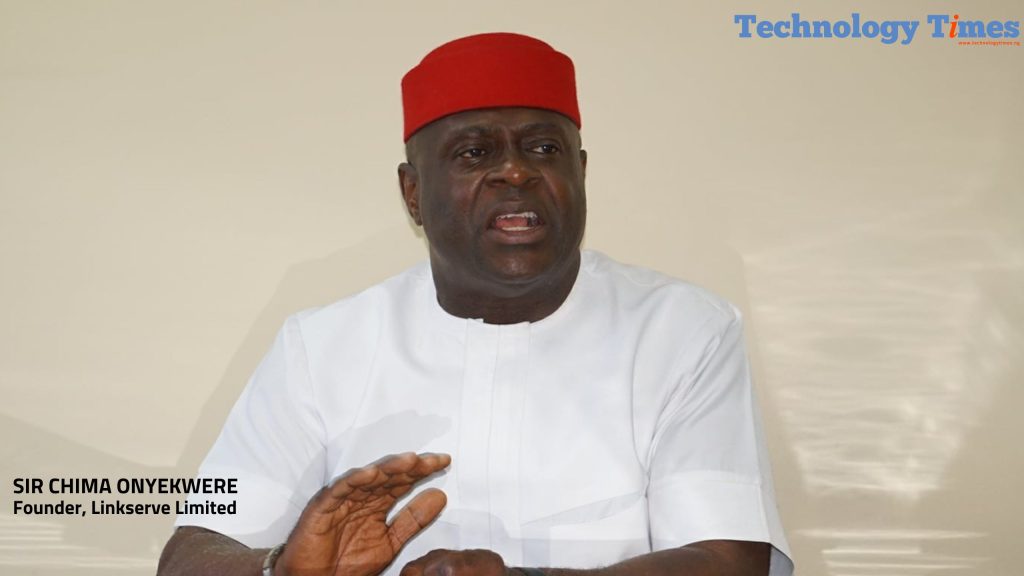
He said that, “government policy is very good when they are announced. When it comes to implementation, the challenges will now manifest. The budget for the Ministry of Digital Economy has dropped by more than 46% to N28.5 billion. And the most attractive area has been the payment area, and we have grown local giants that have been doing very well, starting with Interswitch, SystemSpecs, Paystack, and quite a number of them, and they will continue to grow.”
Sir Chima Onyekwere, OON, Founder, Linkserve Limited.
According to Onyekwere, “almost all government policies have a closed-door policy. You cannot go to NITDA without filling several forms to see an officer, not even the DG or NCC. Those protocols are just very wasteful.”
Secondly, “we should make access to funding highly available, whether it is local or foreign, does not matter to me at this point in time. Let’s get our people employed; that’s what is important. If we are going to copy technology, let’s copy it absolutely.”
“The Ministry of Innovation (Ministry of Communication, Innovation and Digital Economy), Onyekwere said, “should break down its departments. We clearly need a department for application, for software development, AI, and we need a robust unit to guide those departments.”
Mr. Dotun Adeoye, the Co-Founder of AI in Nigeria, while reviewing the state of local content in Nigeria, highlighted the ease of doing business as a major challenge for innovative-minded individuals both within and outside the country. He added that foreign intervention capitalists hold a different perspective, as they tend to invest and withdraw their funds without much consideration for the local economy.
While digital advancements have the potential to create jobs and solve problems over time, Adeoye said that it is crucial to prioritise local content. Gathering ample information on how these challenges have been addressed and overcome, including a well-defined digital strategy like a National AI Strategy and Blockchain is imperative.
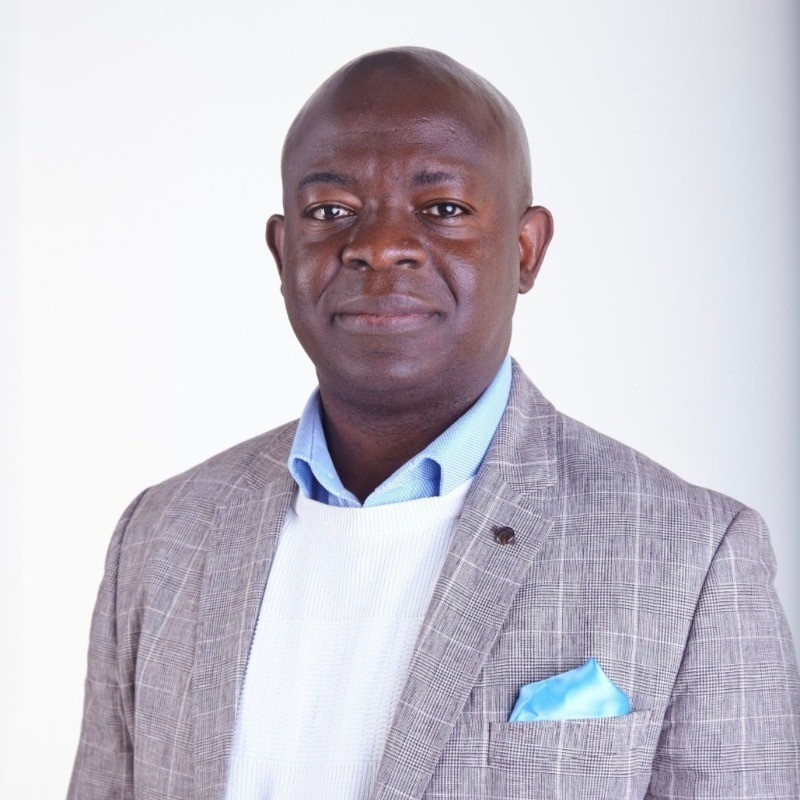
Adeoye reckons that “any advice is as good as implementation. The problem we have in Nigeria is not about clever Nigerians or cerebral Nigerians. The challenge is enabling them to contribute to the growth of our economy because a drive to make Nigeria better cannot come from non-Nigerians. It is crucial for the President to prioritise the engagement of the most brilliant and talented Nigerians worldwide. They should be harnessed and not overlooked.”
Mr Dotun Adeoye, Co-Founder, AI in Nigeria.
Adeoye explained that in many countries similar to Nigeria, success is achieved through clear and effective government policy and public-private partnerships. He believes that the government cannot solely bear the burden of funding innovation, especially when faced with global challenges that strain the availability of funds.
According to him, Nigeria’s heavy reliance on oil as its primary source of income poses numerous obstacles in this regard. Therefore, exploring non-oil sectors and identifying companies that have successfully assisted the government in achieving its objectives is crucial, he suggested. He said that collaborating with these companies will enable the government to effectively implement its digital policies as it grapples with resource constraints.
Adeoye suggests that progress and achievement require the use of supercomputers, particularly in AI. Collaboration with competitors is essential to achieve this. Nigeria’s economic landscape shows promise in fintech, entertainment, and music, but global challenges exist and the ability to adapt quickly will determine success or failure, he said.
The AI in Nigeria Co-Founder believes the government can introduce coding in primary schools without needing to provide funding, as there are many individuals in Nigeria and abroad willing to contribute money and time to train children. He suggests children in years four to six should spend two hours a week learning and training, increasing to four hours a week by year six in preparation for secondary school.
A private-public partnership, Adeoye said, is the solution because Nigeria has a wealth of talent and influential figures that can be connected with the government to achieve these policies, requiring a systematic approach to effectively utilise these talents to contribute to government goals.
He emphasised the need for clearer understanding of target users and demographics through research. “It is crucial to have a deep understanding of who will be using the services being offered. This inclusiveness is essential because the end result justifies the means. Without a clear understanding of the target audience and how the service will impact them, it becomes difficult to effectively serve them.”
There is also the need to consider individuals with diverse abilities and backgrounds, including those with low education levels, limited technical skills, and language barriers. To address these needs, Adeoye mentions the valuable role of linguists who can provide translations in multiple languages. He adds that to make a product accessible, we should also consider those who are hard-of-hearing or visually-impaired and address poor connectivity with backup systems in the design process. By conducting research and involving user feedback, we can ensure an inclusive and accessible final product.
Adeoye reckons that “any advice is as good as implementation. The problem we have in Nigeria is not about clever Nigerians or cerebral Nigerians. The challenge is enabling them to contribute to the growth of our economy because a drive to make Nigeria better cannot come from non-Nigerians. It is crucial for the President to prioritise the engagement of the most brilliant and talented Nigerians worldwide. They should be harnessed and not overlooked.”
On his part, Mr. Tony Izuagbe Emoekpere, President, Association of Telecommunications Companies of Nigeria (ATCON), analysed local participation in different spheres from the communication standpoint. He divided it into two broad areas: “the content itself as regards what we are communicating” in terms of consumption, and “local content in participation of core communication/business, companies that provide services, and infrastructure.”
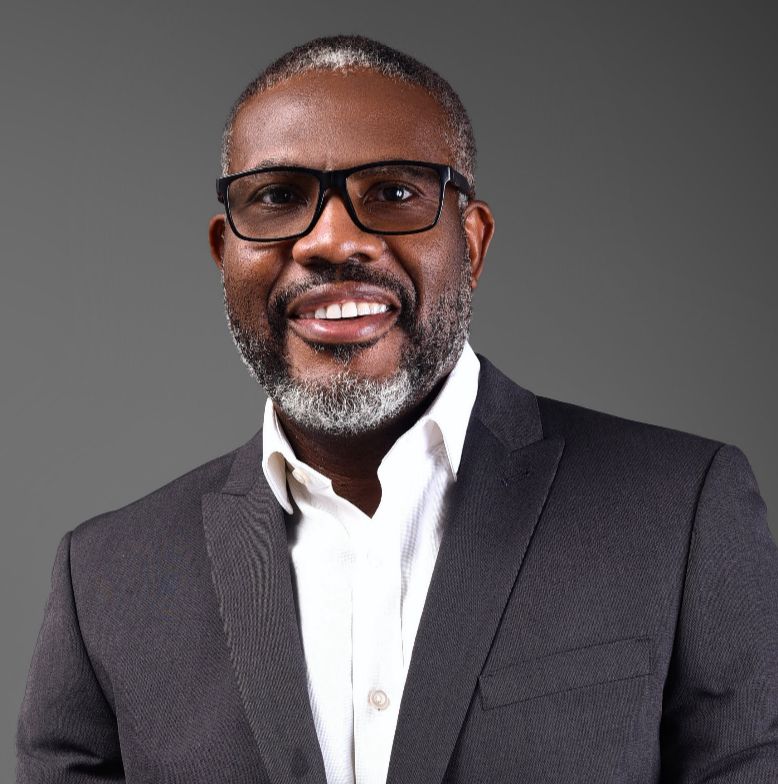
He laid emphasis on, “Infrastructure! Infrastructure!! Infrastructure!!!” as his recommendation to President Tinubu stating that it should be put in place. He expanded on the wide scope of infrastructure, from smartphones to fibre, advocating for a more Public-Private Partnership (PPP) oriented approach, despite acknowledging the government’s good intentions.
Mr. Tony Emoekpere, President, Association of Telecommunications Companies of Nigeria (ATCON).
He stated that local participation is strong in terms of value-added services but there are challenges in providing necessary services that this content relies on. From an MNO (mobile network operator) perspective, he explained it is somewhat balanced among the four major MNOs, with a mix of purely local and foreign and local ownership, but emphasised the need for more local participation.
Regarding the government’s digital economy policy, the ATCON President said that it was a welcome and broad statement but highlighted the challenge of not breaking it down into actual policies that would deliver on the broader goal.
He explained the importance of specifying the aspect and type of jobs created, whether soft or hard skill. He also discussed the renaming of the former “Ministry of Communications and Digital Economy” by the present government by adding “Innovation,” and offered his opinion on previous Governments’ efforts in line with this policy.
He expressed sadness over the industry’s near self-governing state, where most operations are led by private sectors, with regulation being solely the role of the Government. He noted that policies meant to stimulate implementation often remain as mere pronouncements without necessary action to drive them forward.
However, he acknowledged government efforts such as the infrastructure fund with the Central Bank of Nigeria (CBN), advising that local investments denominated in Naira make it easier for operators to meet obligations to investors. He concluded that challenges from past policies are larger than current efforts.
He laid emphasis on, “Infrastructure! Infrastructure!! Infrastructure!!!” as his recommendation to President Tinubu stating that it should be put in place. He expanded on the wide scope of infrastructure, from smartphones to fibre, advocating for a more Public-Private Partnership (PPP) oriented approach, despite acknowledging the government’s good intentions.
On his part, Dr. Abdullahi T. Sulaiman, MD/CEO, Nigtel Nigeria, sees local content as digital items that are locally-made in Nigeria. He disclosed that the majority of youth make money on various online platforms, which serves as a catalyst for local content. He implored the government to facilitate public-private partnerships to enhance the number of investors and improve the digital economy.
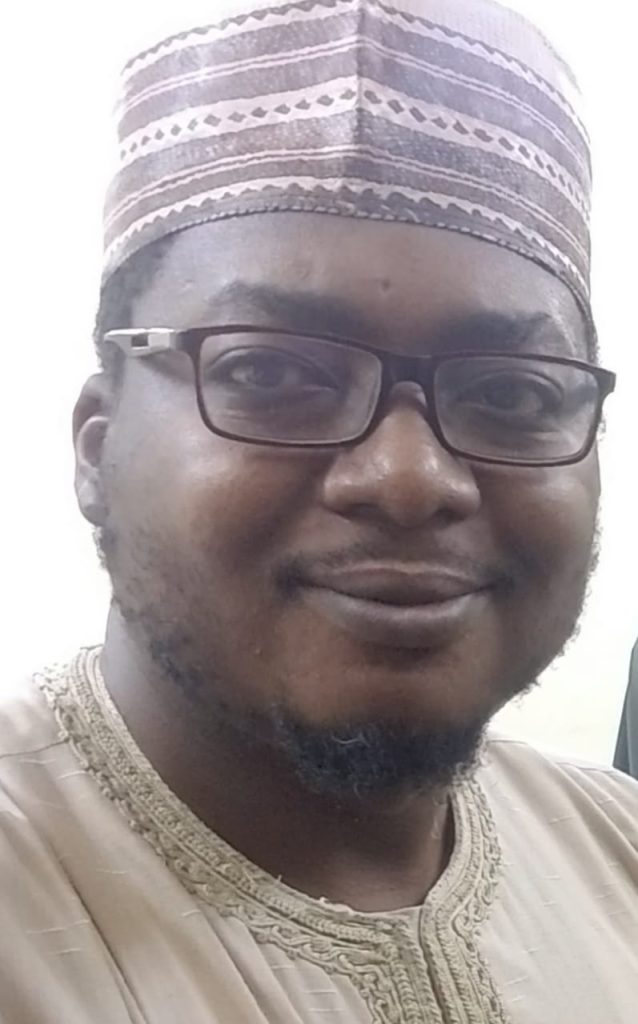
Dr. Sulaiman also advised the President on infrastructure and policy issues, emphasising the need for thorough implementation of policies. He urged the government to support initiatives by patronising local content, whether in terms of human resources, gadgets, software developers, or other locally-made products.
Dr. Abdullahi T. Sulaiman, MD/CEO, Nigtel Nigeria.
Dr. Sulaiman highlighted three key recommendations to the president on local content. He underscored the need for synergy between the government, private sector, and academia. For him, “the government must create or strengthen collaboration between these three elements—government, academia, and private sector. It will go a long way in enhancing the growth and development of the economy.”
Furthermore, he stressed the importance of involving academia in national development. He suggested, “If academia is not involved, the best way to engage them is to ensure concerted efforts and collaboration between government, academia, and the private sector.”
Dr. Sulaiman also advised the President on infrastructure and policy issues, emphasising the need for thorough implementation of policies. He urged the government to support initiatives by patronising local content, whether in terms of human resources, gadgets, software developers, or other locally-made products.
“If the President can heed this advice, the digital economy will definitely progress, and the vision of Mr. President will be achieved,” according to the Nigtel Nigeria CEO.
Assessing the state of local tech content in Nigeria, Mr Inye Kemabonta, CEO of Tech Law Development Services, highlighted the critical importance of understanding local content within the global trade context. He underscored the need for government involvement in nurturing local tech capacity through public procurement not private funding.
Mr Kemabonta outlined key challenges hindering the growth of indigenous tech content, by encapsulating it in three ways- government sincerity, government knowledge and government will.
According to him, “many persons in government don’t think of Nigeria, they think of the product. That is why we consume everything that is foreign and do not bother to produce locally.” Mr Kemabonta said that “the government doesn’t spend or hasn’t spent its resources directly in building that local capacity.”
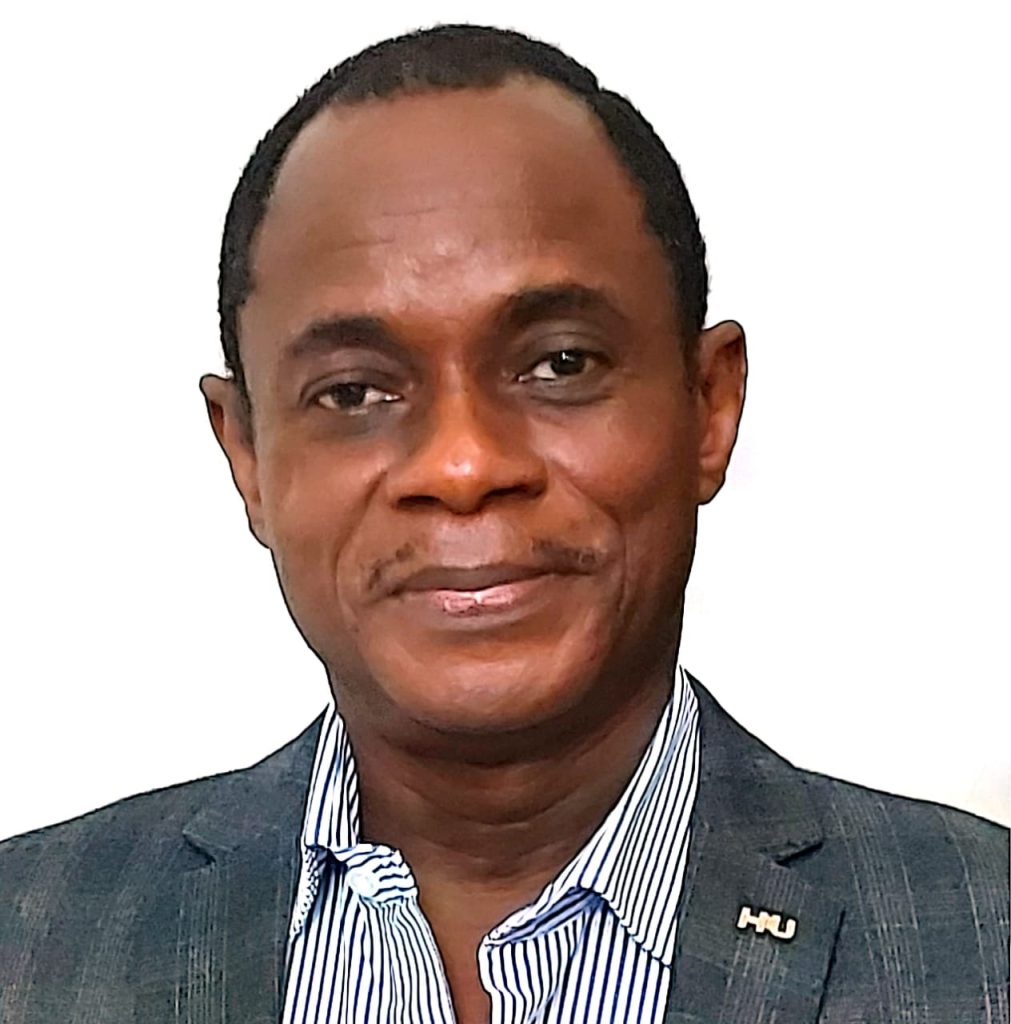
Mr Kemabonta advised President Tinubu to champion indigenous tech content by making a statement and charging ministries to follow suit similar to President Yar’Adua’s statement on e-payment solutions, which was to radically boost the e-payment ecosystem in Nigeria.
Mr Inye Kemabonta, CEO of Tech Law Development Services.
He went ahead to propose solutions centred around establishing quality standards and a market environment. “Government needs to create a standard- what quality of products do you want in the sector ICT? What’s the standard you need across? Specify them and then invest in local producers in a manner that would make them meet those standards.”
He also added that angel investor networks should be encouraged in every state across the country.
Mr Kemabonta advised President Tinubu to champion indigenous tech content by making a statement and charging ministries to follow suit similar to President Yar’Adua’s statement on e-payment solutions, which was to radically boost the e-payment ecosystem in Nigeria.
Highlighting vulnerabilities in the reliance on foreign technology, Kemabonta warned against the potential risks for Nigeria’s digital economy being built on foreign solutions like the banking sector. “Nigeria can be shut down in one week if any telecom sector is brought down,” he warned. “We must have Nigerian solutions powering Nigerian critical sectors. Otherwise, we are joking.”
He advocated for regulations by government agencies like the Nigerian Communications Commission (NCC) to promote local assembly of devices, citing the need to create jobs, foster innovation and knowledge sharing.
For Kemabonta, “we are not economically independent.” He also emphasised the imperative of saving the Naira by prioritising local production and consumption of technology solutions. By investing in indigenous tech content, Nigeria can bolster its economic independence, create employment opportunities, and then go global.


